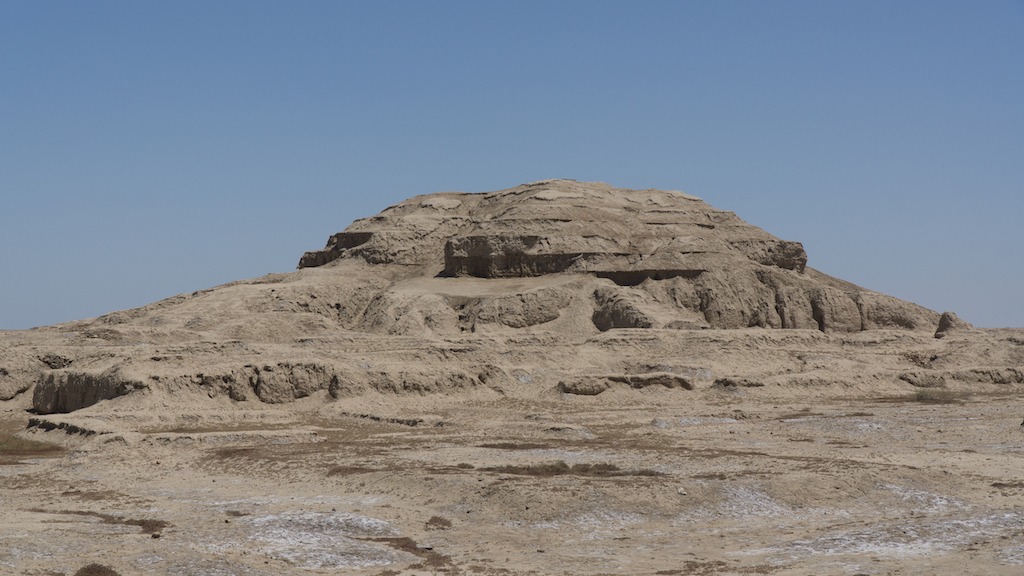Sorry all for being out for the last few days while I was ill with a really bad cold. Not 100% yet, but needed to post something to keep your day interesting. Today the interesting fact is about our months. This interesting fact is from justfunfacts.com:
"A month is a unit of time, used with calendars, that is approximately as long as a natural orbital period of the Moon – the words month and Moon are cognates.
The traditional concept arose with the cycle of Moon phases – such lunar months (“lunations”) are synodic months and last approximately 29.53 days.
Each month has either 28, 30, or 31 days during a common year, which has 365 days. During leap years, which occur nearly every 4 years, we add an extra (intercalary) day, Leap Day, on 29 February, making leap years 366 days long.
From excavated tally sticks, researchers have deduced that people counted days in relation to the Moon’s phases as early as the Paleolithic age.
Our current Gregorian calendar and its predecessor, the Julian calendar, both have 12 months. However, the month names we use today are derived from the Roman calendar, which initially had only 10 months, with the calendar year starting in March (Martius).
The Gregorian Calendar is the most widely used calendar in the world today. It was introduced in October 1582 by Pope Gregory XIII as a minor modification of the Julian calendar, reducing the average year from
365.25 days to 365.2425 days, and adjusting for the drift in the ‘tropical’ or ‘solar’ year that the inaccuracy had caused during the intervening centuries.
The Julian calendar was introduced by Julius Caesar in 45 BC and replaced the Roman calendar. The Julian calendar is still used in parts of the Eastern Orthodox Church and in parts of Oriental Orthodoxy as well as by the Berbers.
The Roman calendar, was a very complicated lunar calendar, based on the moon phases. It required a group of people to decide when days should be added or removed in order to keep the calendar in sync with the astronomical seasons, marked by equinoxes and solstices.
The Hellenic calendars, the Hebrew Lunisolar calendar and the Islamic Lunar calendar started the month with the first appearance of the thin crescent of the new moon.
January is the first month of the year in the Julian and Gregorian calendars. The first day of the month is known as New Year’s Day. It is, on average, the coldest month of the year within most of the Northern Hemisphere (where it is the second month of winter) and the warmest month of the year within most of the Southern Hemisphere (where it is the second month of summer). January is named after Janus, the god of beginnings and transitions in Roman mythology.
February is the second month of the year in the Julian and Gregorian calendars. Having only 28 days in common years, February is the only month of the year that can pass without a single full moon. The Roman month Februarius was named after the Latin term februum, which means “purification”, via the purification ritual Februa held on February 15 (full moon) in the old lunar Roman calendar.
March is the third month of the year in both the Julian and Gregorian calendars. In the Northern Hemisphere, the meteorological beginning of spring occurs on the first day of March. The name of March comes from Martius, the first month of the earliest Roman calendar. It was named after Mars, the Roman god of war, and an ancestor of the Roman people through his sons Romulus and Remus.
April is the fourth month of the year in the Gregorian calendar, the fifth in the early Julian. The Romans gave this month the Latin name Aprilis but the derivation of this name is uncertain. The traditional etymology is from the verb aperire, “to open”, in allusion to its being the season when trees and flowers begin to “open”, which is supported by comparison with the modern Greek use of άνοιξη (ánixi) (opening) for spring.
May is the fifth month of the year in the Julian and Gregorian calendars. May was named for the Greek Goddess Maia, who was identified with the Roman era goddess of fertility, Bona Dea, whose festival was held in May. Conversely, the Roman poet Ovid provides a second etymology, in which he says that the month of May is named for the maiores, Latin for “elders,” and that the following month (June) is named for the iuniores, or “young people” (Fasti VI.88).
June is the sixth month of the year in the Julian and Gregorian calendars. The Latin name for June is Junius. Ovid offers multiple etymologies for the name in the Fasti, a poem about the Roman calendar. The first is that the month is named after the Roman goddess Juno, the goddess of marriage and the wife of the supreme deity Jupiter – the second is that the name comes from the Latin word iuniores, meaning “younger ones”, as opposed to maiores (“elders”) for which the preceding month May (Maius) may be named. Another source claims June is named after Lucius Junius Brutus, founder of the Roman Republic and ancestor of the Roman gens Junia.
July is the seventh month of the year in the Julian and Gregorian calendars. It is on average the warmest month in most of the Northern Hemisphere, where it is the second month of summer, and the coldest month in much of the Southern Hemisphere, where it is the second month of winter. It was named by the Roman Senate in honour of Roman general Julius Caesar, it being the month of his birth. Before that, it was called Quintilis, being the fifth month of the 10-month calendar.
August is the eighth month of the year in the Julian and Gregorian calendars. It was originally named Sextilis in Latin because it was the 6th month in the original ten-month Roman calendar under Romulus in
753 BC, with March being the first month of the year. In 8 BC, it was renamed in honor of Emperor Augustus. According to a Senatus consultum quoted by Macrobius, he chose this month because it was the time of several of his great triumphs, including the conquest of Egypt.
September is the ninth month of the year in the Julian and Gregorian calendars. It marks the beginning of the ecclesiastical year in the Eastern Orthodox Church. It is the start of the academic year in many countries of the northern hemisphere, in which children go back to school after the summer break, sometimes on the first day of the month. September comes from the Latin word septem, meaning “seven,” because it was the seventh month of the early Roman calendar.
October is the tenth month of the year in the Julian and Gregorian calendars. The name for this month comes from the Roman word for “eighth” – octavus – as it was the eighth month of the Roman year. The Oktoberfest is the world’s largest Volksfest (beer festival and travelling funfair). It is held annually in Munich, Bavaria, Germany.
November is the eleventh month of the year in the Julian and Gregorian Calendars. It takes its name from the Latin word for the number nine. November was referred to as Blōtmōnaþ by the Anglo-Saxons. Brumaire and Frimaire were the months on which November fell in the French Republican Calendar.
December is the twelfth and final month of the year in the Julian and Gregorian calendars. December got its name from the Latin word decem (meaning ten) because it was originally the tenth month of the year in the calendar of Romulus c. 750 BC which began in March."
I have lost a lot of faith with the Medical Community and the Governments over the last several years, but there are a few good things that can raise above the corruption and the pushing of drugs a new approach to heal people. The following is from www.gaia.com and written by Hunter Parsons that does not involve any drug or pushing an ineffective so called vaccine that the drug company is not held accountable in any way but they use sound! The use of sound can regrow bone tissue! Here is the story:
"The future of regenerative medicine could be found within sound healing by regrowing bone cells with sound waves.
The use of sound as a healing modality has an ancient tradition all over the world. The ancient Greeks used sound to cure mental disorders; Australian Aborigines reportedly use the didgeridoo to heal; and Tibetan or Himalayan singing bowls were, and still are, used for spiritual healing ceremonies.
Recently, a study showed an hour-long sound bowl meditation reduced anger, fatigue, anxiety, and ...
Not a fan of a Defense Agency studying Anti-Gravity and other Exotic Tech, but if the commercial world and make this technology cheap that will change our world yet again. The following is about three minute read and from www.gaia.com. The below was written by Hunter Parsons:
"Wormholes, invisibility cloaks, and anti-gravity — it’s not science fiction, it’s just some of the exotic things the U.S. government has been researching.
A massive document dump by the Defense Intelligence Agency shows some of the wild research projects the United States government was, at least, funding through the Advanced Aerospace Threat Identification Program known as AATIP.
And another lesser-known entity called the Advanced Aerospace Weapons System Application Program or AAWSAP
The Defense Intelligence Agency has recently released a large number of documents to different news outlets and individuals who have filed Freedom of Information Act requests.
Of particular interest are some 1,600 pages released to Vice News, which ...
As our technology gets better we are discovering more about the history of mankind and pushing the timeline back further and further. The following article is from www.gaia.com and written by Michael Chary that discusses this new find that changes the historical timeline:
"Over the past decade, there have been a number of archeological revelations pushing back the timeline of human evolution and our ancient ancestors’ various diasporas. Initially, these discoveries elicit some resistance as archeologists bemoan the daunting prospect of rewriting the history books, though once enough evidence is presented to established institutions, a new chronology becomes accepted.
But this really only pertains to the era of human development that predates civilization — the epochs of our past in which we were merely hunter-gatherers and nomads roaming the savannahs. Try challenging the consensus timeline of human civilization and it’s likely you’ll be met with derision and rigidity.
Conversely, someone of an alternative...
Not sure if you have heard of a show on YouTube called "The Why Files". If not you should check it out it is interesting and has some humor with it on different subjects. Last weeks was on a different theory how the Universe works and how main stream Science is attempting to shut it down like is always seems to do if it goes aguest some special interest. Today it is akin to what happened to those who questioned the Earth was the Center of the Universe that main stream so called Science all believed during the Renaissance period, They called any theory that the Earth was not the Center of the Universe misinformation. Does this sound familiar today? People laughed and mocked people like Leonardo da Vinci, Nicolaus Copernicus, Georg Purbach as crack-pots, conspiracy theorists, nut-jobs and they were suppressed and even imprisoned for their radical thoughts and observations. Again it sounds like today in so many ways. In any event this is a good one to ponder and see even if a bad idea ...
Seemingly chaotic systems like the weather and the financial markets are governed by the laws of chaos theory.
We all have heard about chaos theory, but if you have not or have forgotten what chaos theory is well here you go from interestingengineering.com:
"Chaos theory deals with dynamic systems, which are highly sensitive to initial conditions, making it almost impossible to track the resulting unpredictable behavior. Chaos theory seeks to find patterns in systems that appear random, such as weather, fluid turbulence, and the stock market.
Since the smallest of changes can lead to vastly different outcomes, the long-term behavior of chaotic systems is difficult to predict despite their inherently deterministic nature.
As Edward Lorenz, who first proposed what became commonly known as the Butterfly Effect, eloquently said, "Chaos: When the present determines the future, but the approximate present does not approximately determine the future.""
You may have heard the term about chaos theory as a butterfly flaps its wings in Brazil,...
I for one have lost trust in Medical Doctors due to COVID and reflection that they seem to push pills for everything and untested so called vaccines that is using a unproven technology because the Government and the Medical Boards of the State told them to. There are a very few exceptions. Thus they do not address the key problem just prescribe more and more pills to keep you alive an sick longer for them and Big Phama to profit from you. Will AI do any better? Well that depends on what was used for the training of AI. If it also pushes pills and vaccines without question then you have the same problems noted above. However, if the AI Training includes all possible forms of treatment and they zero in on the right issues for the true problem then there is possibilities they would be way better than most of the current Medical Doctors today.
The following is from an article from interestingengineering.com and written by Paul Ratner:
"A new study looks at how accurately AI can diagnose patients. We interview the researcher, who weighs in on AI's role ...



























